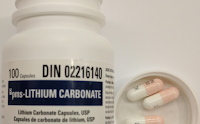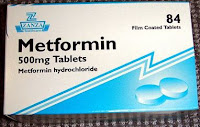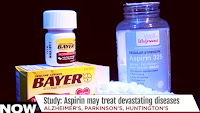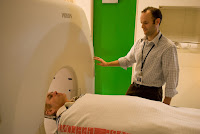
Best of 4 Alzheimer’s Drugs
See safety and effectiveness rankings for four Alzheimer’s drugs. Ranked on concentration, memory, alertness and mood, learn what the researchers found.

See safety and effectiveness rankings for four Alzheimer’s drugs. Ranked on concentration, memory, alertness and mood, learn what the researchers found.

A study at McGill University shows that lithium given in micro doses may be capable of both halting signs of advanced Alzheimer’s pathology and recovering lost cognitive abilities.

People with Parkinson’s were given the oral drug rivastigmine (brand name Exelon®). They were 45% less likely to fall and were considerably steadier when walking. Learn more about this dementia drug and fall prevention.

EXCELLENT VIDEO: COMPREHENSIVE, CLEAR, UP-TO-DATE Everything you ever wanted to know about medications & supplements for Alzheimer’s and related dementias.

FDA CommissionerScott Gottlieb NEWS VIDEO + ARTICLE: 17 Alzheimer’s supplement manufacturers received FDA warnings about 58 illegal below-standard products.

OFF-LABEL: An approved prescription drug for high blood pressure is showing promise against Parkinson’s, Huntington’s and other forms of dementia, in experimental studies in the

HELPFUL MEDICATIONS:
Diabetes can increase Alzheimer’s risk. Learn how drug treatments for diabetes bring that risk back down.

HELP FROM THE PHARMACY: Study reveals patients need help managing drugs Community pharmacists could be used more to support patients and carers Assisting carers reduces

MEDICATIONS VIDEO + ARTICLE: Aspirin cleared some Alzheimer’s plaque in the lab. Plaque is the best-known culprit behind Alzheimer’s. Learn about this potential new role

F18 ALZHEIMER’S SCANS offer powerful diagnostic technology, enabling doctors to “see” Alzheimer’s plaque. At $3000 to $6000 per person, are they worth it?

Salk Institute’s J147 is a derivative of turmeric, a spice used in curry. Learn how it fights memory deficits and has a host of unexpected anti-aging effects in the lab.

FDA approves a newly recommended dosing schedule for Kisunla (Donanemab). It’s significantly safer due to lowered ARIA-E rates, which has been the main problem with these drugs.

A nutrient hidden in your daily meals could hold the key to preventing and slowing Alzheimer’s. Discover what Arizona researchers are revealing about the power of choline.

SHORT-TERM MEMORY lapses are obvious signs of Alzheimer’s, but other tell-tale signals begin to show much earlier. Learn how to look for semantic impairments, such as simple questions about size.

Three important dementia studies focus on HS-AGING, a type of dementia almost as common as Alzheimer’s in the 85+ group. Yet few people have heard of it. Why? What makes it different?

An intriguing study of 120 grandmothers might surprise you. Doctors know socially engaged people have better cognition and less dementia. But can a person get too much of a good thing? What’s the right balance?

Enjoy this great duet between a musician with dementia and his son. A triumph of spirit over Alzheimer’s! Sing-a-long if you like!
No spam, only news and updates.



This site was inspired by my Mom’s autoimmune dementia.
It is a place where we separate out the wheat from the chafe, the important articles & videos from each week’s river of news. Google gets a new post on Alzheimer’s or dementia every 7 minutes. That can overwhelm anyone looking for help. This site filters out, focuses on and offers only the best information. It has helped hundreds of thousands of people since it debuted in 2007. Thanks to our many subscribers for your supportive feedback.
The site is dedicated to all those preserving the dignity of the community of people living with dementia.
Peter Berger, Editor